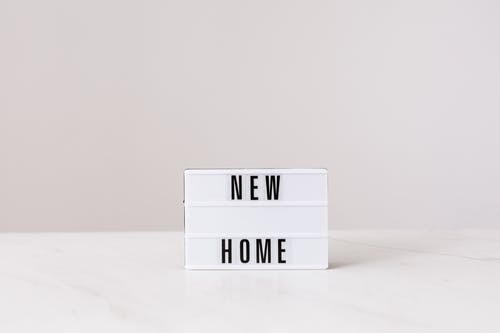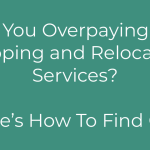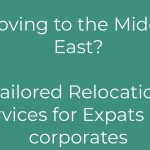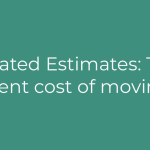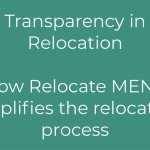Relocating to a new region can be an exhilarating yet overwhelming experience, not least because of the need to secure suitable housing. Whether you’re moving to the Middle East and North Africa (MENA) region for work, studies, or simply for a change of scenery, one of the crucial aspects of your move will be finding a suitable place to live.
Navigating the rental market in the MENA region can seem like a perplexing maze, especially if you’re unfamiliar with the local customs, regulations, and housing options available. From what to look for in a rental property to understanding where to find both short-term and long-term housing options and how to negotiate lease terms, this guide aims to demystify the process and offer practical tips to help you feel at home in your new location.
Understanding the Housing Landscape
The MENA region is vast and diverse, with housing options ranging from traditional villas and apartments in urban centres to modern, high-tech skyscrapers in rapidly developing cities. The first step in your housing search is understanding your needs and preferences. Do you prioritize location, size, amenities, or price? Once you have a clear idea of what you’re looking for, it will be easier to sift through the options available.
Finding the Right Rental Property
When it comes to choosing a rental property, here are some key factors to consider:
- Location
The location of your accommodation is pivotal. It affects your commute to work or school, access to amenities, and overall quality of life. Research neighbourhoods thoroughly, considering factors like proximity to public transportation, supermarkets, schools, healthcare facilities, and areas of cultural interest.
- Size and Layout
Depending on whether you’re moving alone, as a couple, or with a family, you’ll have different space requirements. Check not just the number of bedrooms and bathrooms but also the layout and usability of the space.
- Condition and Maintenance
The condition of the property is a clear indicator of how well it has been maintained. Look out for signs of wear and tear, and ask about maintenance processes and who will be responsible for any necessary repairs.
- Amenities and Facilities
Amenities such as a gym, swimming pool, parking space, or a children’s play area can add significant value to a property. Understand what’s included in the rent and what might incur additional costs.
Where to Find Housing Options
Numerous online platforms and real estate agencies specialize in housing rentals in the MENA region. Websites like PropertyFinder, Bayut, and Dubizzle are excellent resources for UAE, while OLX and Aqarmap cater to the Egyptian market. Check out local real estate agencies and ex-pat forums for recommendations for other countries.
For short-term housing, consider serviced apartments or vacation rentals, which can be found on platforms like Airbnb or Booking.com. These options offer flexibility and are often fully furnished, making them a convenient choice if you’re still looking for long-term accommodation.
Negotiating Lease Terms
Lease negotiations can be a tricky part of securing your accommodation, and this is where cultural understanding and local norms come into play. In many MENA countries, rents are negotiable to some extent. Here are some tips:
- Know the Market
Understand the going rates for similar properties in the area. This knowledge will give you a stronger position when negotiating.
- Be Prepared to Walk Away
If a deal doesn’t meet your needs or budget, be ready to walk away. There are always other options available.
- Get It in Writing
Once you’ve agreed on terms, ensure they are clearly stated in the contract. This includes the rent amount, payment schedule, duration of the lease, responsibilities for repairs and maintenance, and any other specifics like pet policies or parking arrangements.
- Legal Consultation
Laws regarding rental properties vary significantly across the MENA region. It’s advisable to seek local legal advice to ensure you fully understand the terms and conditions of your lease and your rights and obligations as a tenant.
- Lease Language
Make sure the lease is in a language you understand. If the lease is in Arabic, consider getting a translated copy to avoid misunderstandings.
Other Considerations
- Utilities and Bills
Find out what utilities are included in your rent and which are not. Standard utilities include water, electricity, gas, and sometimes even internet.
- Safety and Security
Check the safety features of the property, including door locks, security systems, and fire safety measures. If you are in a complex, ask about security personnel and access control.
- Cultural Norms
Respect for local traditions and customs is essential. Certain behaviours, such as noise levels or entertaining guests of the opposite sex, might be governed by cultural norms, so it’s essential to understand these before you move in.
- Community
Finally, consider the community you’ll be joining. Is it a family-friendly environment? Are there community events or facilities that you can participate in?
Finding suitable accommodation in the MENA region can be a business-like task, filled with perplexity and challenges. Still, it’s also an opportunity for a fresh start and new experiences. With these tips, you’re well on your way to making an informed decision and, hopefully, finding a place you can call home.
Whether you’re exploring the ancient souks of Marrakesh, the towering skyscrapers of Dubai, or the bustling streets of Cairo, the MENA region is teeming with diverse and exciting housing opportunities. Happy house hunting!
